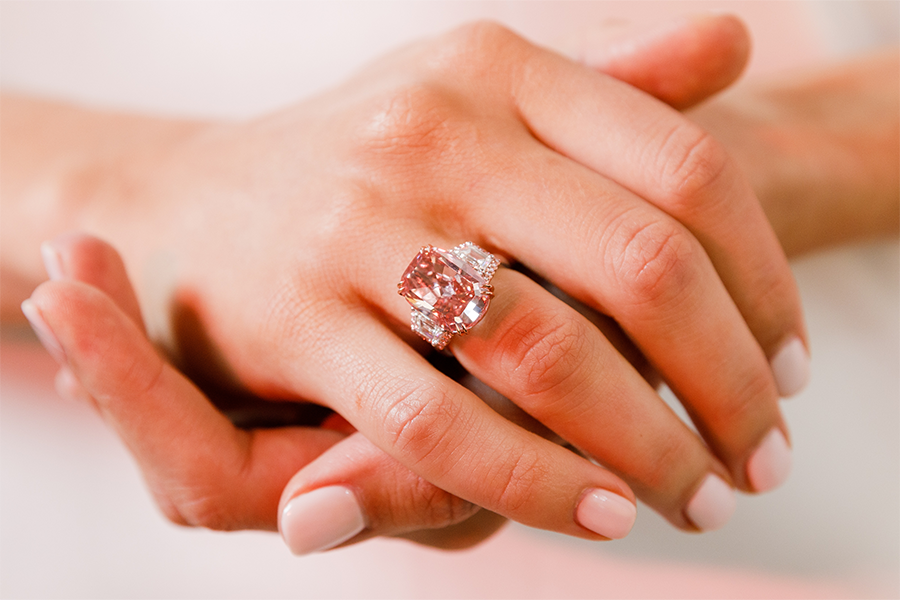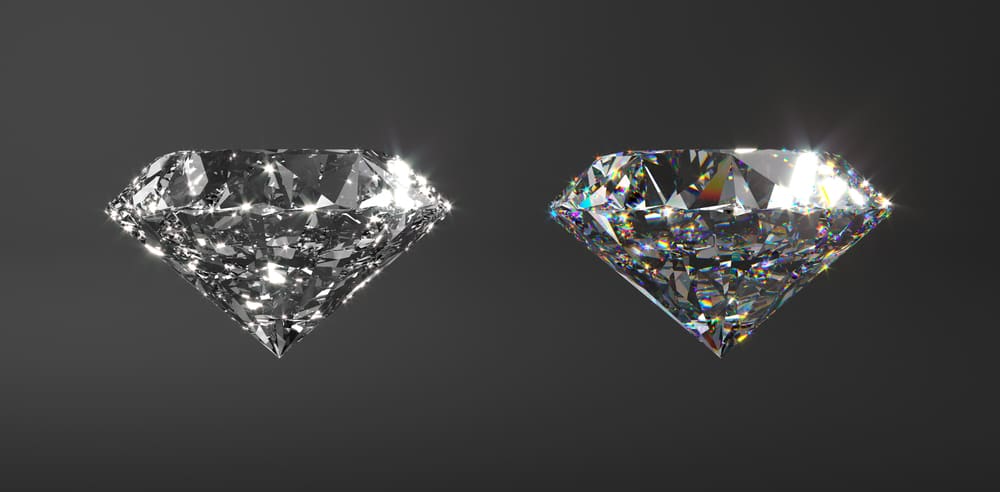Introduction
In the event that you’re in the market for a diamond, you’ve probably gone over two familiar names: GIA and IGI. These acronyms address two of the most prominent gemological labs on the planet, both offering certification administrations for diamonds. However, what exactly is the contrast between GIA vs IGI? Is one lab better than the other? Assuming you’re wondering which certification is best for your diamond purchase, this guide will walk you through everything you really want to be familiar with GIA and IGI, from their histories and grading cycles to their reputations and impacts on pricing. How about we plunge into the details!
What is GIA?
History and Background
The Gemological Institute of America (GIA) was established in 1931 in Los Angeles. It immediately developed into the global standard for diamond grading, offering a thorough and profoundly regarded certification process. GIA is prestigious for developing the internationally accepted “Four Cs” grading framework — carat weight, cut, variety, and clarity — which reformed the way diamonds are traded. Throughout the long term, GIA has turned into the go-to authority for diamond certification, and their reports are viewed as the gold standard in the industry.
GIA Certification Cycle
At the point when you purchase a diamond with a GIA certificate, you can believe that it has been evaluated with the highest level of precision. The cycle involves a progression of master evaluations, including:
- Visual Inspection – The diamond is examined under magnification to assess its cut, clarity, and variety.
- Infinitesimal Analysis – A magnifying instrument is utilized to inspect internal characteristics (inclusions) and external features (blemishes).
- Weight Measurement – Carat weight is recorded to determine the size of the diamond.
After the assessment, the GIA issues a detailed report that includes all of the diamond’s grading information.
H2: What is IGI?
History and Background
The International Gemological Institute (IGI) was established in 1975 in Antwerp, Belgium. Throughout the long term, IGI has fabricated areas of strength for an in the diamond grading industry, with labs across the globe. IGI certification is in many cases seen as a more affordable alternative to GIA yet maintains exclusive expectations of evaluation. While GIA may have a more established reputation, IGI has expanded rapidly in late decades and remains a vital participant in the diamond certification world.
IGI Certification Cycle
IGI’s diamond certification process is similar to GIA’s in many regards. This is what you can expect while getting an IGI-ensured diamond:
- Minuscule Examination – The diamond is placed under a magnifying instrument to examine its clarity and inclusions.
- Measurement of Physical Properties – Factors like tone, carat weight, and extents are measured with sophisticated tools.
- Cut and Shape Evaluation – The cut is assessed, considering the diamond’s brilliance and overall extents.
The IGI certificate that accompanies the diamond will detail all of its vital characteristics and grades.
H2: Key Contrasts Among GIA and IGI
While both GIA and IGI give reputable certifications, there are a few critical contrasts to consider. We should break down a couple of the main ones:
1. Reputation and Acknowledgment
GIA is the industry leader in diamond certification, with a reputation for accuracy and precision. Most top of the line gem specialists, particularly those in the extravagance market, lean toward GIA-affirmed diamonds because of their unmatched believability. IGI, then again, is viewed as a more affordable alternative, however it may not carry the same load concerning global acknowledgment.
2. Diamond Grading Standards
Both GIA and IGI utilize the same basic criteria for grading diamonds (the Four Cs), however GIA is in many cases regarded as additional conservative in its evaluations. A few pundits argue that IGI may be somewhat more permissive in grading, which could bring about diamonds being graded more favorably than they may be by GIA standards. This could impact the apparent value of an IGI-ensured diamond compared to a GIA-guaranteed one.
3. Cost and Pricing
As far as cost, diamonds ensured by IGI will quite often be more affordable than those confirmed by GIA. This is because IGI’s grading interaction is generally more affordable and may be seen as somewhat less stringent, which could translate to a lower price for the purchaser. Notwithstanding, it’s memorable’s important that price isn’t always indicative of quality.
H2: Understanding Diamond Grading
Before you can make an informed decision about whether GIA or IGI is the ideal decision for your diamond, it’s essential to understand the basics of diamond grading.
1. The 4 Cs of Diamond Grading
Diamonds are graded based on the following four characteristics:
- Cut: How well the diamond is shaped and faceted. A very much cut diamond will have incredible brilliance and sparkle.
- Variety: how much the diamond is boring, with variety grading ranging from D (dry) to Z (light yellow or brown).
- Clarity: The presence of internal or external flaws, known as inclusions and blemishes, separately.
- Carat Weight: The size of the diamond, with larger diamonds being more valuable.
Both GIA and IGI evaluate diamonds based on these four criteria, however GIA is in many cases thought about additional severe in its assessments.
How GIA and IGI Grade Diamonds
GIA and IGI both utilize specialized tools to assess the Four Cs of a diamond, however their grading strategies and frameworks can vary somewhat. GIA, for example, is known for its more conservative grading, especially with regards to clarity and variety. IGI, then again, has been scrutinized for being somewhat more merciful in its grading, which could bring about a diamond being given a higher grade than it would get from GIA.
GIA vs IGI: Which One is More Reliable?
Accuracy and Precision
With regards to accuracy, GIA is much of the time thought about the more reliable decision. Its grading cycle is known for its precision, and GIA-ensured diamonds are trusted by gem specialists and customers alike. IGI is still profoundly regarded, yet some may argue that its grading cycle is less stringent, potentially leading to discrepancies in how diamonds are graded.
Well-qualified Opinion and Buyer Certainty
Buyer trust in GIA is higher overall because of the lab’s well established reputation and its thorough grading standards. Many specialists suggest GIA-ensured lab grown diamonds on the off chance that you’re looking for the most dependable representation of a diamond’s actual quality. Be that as it may, IGI diamonds are as yet a reliable choice, especially to get the best value for your cash.
Buyer Considerations: Which Certification Would it be a good idea for you to Pick?
Price Awareness
On the off chance that you’re on a strict spending plan, IGI may be the better choice. While GIA diamonds are generally more costly, IGI diamonds are much of the time more affordable, allowing you to get an excellent stone at a lower price. In any case, remember that the lower cost of an IGI-ensured diamond may also mean somewhat more tolerant grading.
Long haul Value vs. Momentary Expense
In the event that you’re looking at the drawn out value of your diamond, GIA certification may be the better decision. GIA-affirmed diamonds are generally viewed as more valuable and are bound to hold their value in the resale market. Be that as it may, assuming you’re primarily worried about the transient expense and financial plan, IGI-ensured diamonds actually offer good value.
GIA or IGI for Engagement Rings?
The most effective method to Pick the Best Certification for Your Ring
While choosing an engagement ring, the certification can play a crucial job in your decision-making process. In the event that you’re looking for a top of the line, extravagance ring and are willing to invest in the best, GIA certification is a safe wagered. In the event that you want a beautiful diamond at a more affordable price point, an IGI-confirmed diamond could be a good choice.
The Impact of GIA and IGI Certification on Diamond Value
Resale and Market Demand
As far as resale value, GIA diamonds generally command greater costs because of their higher saw value and validity. IGI diamonds, while still valuable, may not hold the same market demand as their GIA counterparts.
Real-Life Examples
The distinctions among GIA and IGI certifications can be found in the real world while shopping for diamonds. For example, a GIA-confirmed diamond may bring a more exorbitant cost in a resale situation or be valued higher by collectors. Notwithstanding, an IGI-ensured diamond could be a great choice for those looking for a beautiful stone at a more affordable price.
Conclusion
In the GIA vs IGI debate, there’s nobody size-fits-all answer. The two labs offer valuable certifications, yet your decision will rely upon your spending plan, the value you place on certification, and your personal inclinations. While GIA is viewed as the gold standard and is more costly, IGI offers a more affordable alternative with strong grading standards. Whatever you pick, guarantee you’re all around informed about the grading framework and what each certification means for your diamond. Happy diamond shopping!




